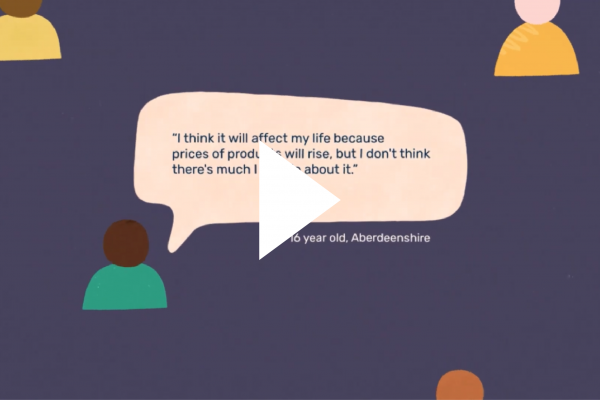What are young people in Scotland's views, hopes, and fears about Brexit and Scottish independence? We invited young people across Scotland to fill in a survey - here's what they had to say, including how they feel they can be included in discussions on constitutional change.
In 2014, 55% voted against independence in a referendum. In the 2016 Brexit referendum, 52% of voters across the UK – but just 38% in Scotland – voted for the UK to leave the European Union. Most young people today didn’t have a say in either of these referendums. Of those who did, surveys suggested that, across the UK, around three-quarters of those under the age of 25 voted for the UK to remain in the EU.
It has been eight years since the Scottish independence referendum and six years since the Brexit referendum. Debates about Scotland’s place in the UK, and the UK’s place in Europe, are ongoing. Although most young people have not been party to these decisions, the outcomes can have a significant effect on their futures.
Young people's thoughts and feelings - a survey
We wanted to bring young people together to discuss their thoughts and feelings about these developments. Covid made this difficult to do in person, so we instead invited young people to share their views with us via a survey. Fifty-nine young people from across Scotland did so.
Our survey was qualitative in nature and should not be considered to be a representative sample of young people. Rather, we wanted to give young people a platform to air their views, hopes and fears about Brexit and Scotland’s future.
Who completed the survey?
Watch: Our Scotland, our future
What did they have to say about Scotland’s future? Watch our new animation:
Click the icon in the bottom right of the video to watch full screen, or watch on YouTube.





